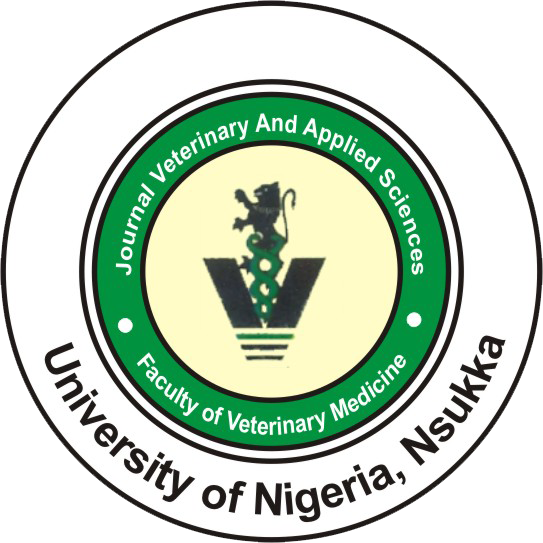University of Nigeria
ISSN: 2315 - 6856
e-ISSN: 2636 - 5553
Journal volumes
Powered by: RockSystems Global Services Ltd.
rocksystemsglobal@gmail.com (+2348035271306)
www.rocksystemsglobal.com
Volume 13, Issue 1: 2023 - Article 3
Abstract:
The blood-feeding behaviour of ticks highlights their importance as arthropod vectors because majority of pathogens affecting both humans and animals are transmitted during the blood feeding activity. Live animals are conventionally used to maintain tick colonies for laboratory research. There is a need and also interest in replacing this conventional use of live animals for tick rearing with artificial tick feeding/rearing alternatives, as this is considered to be more ethical and cost-effective. This article reviews the feeding biology of ticks, the tick feeding process, how various ticks digest blood meal, how ticks are maintained on live animals in the laboratory, and alternative in vitro tick rearing methods which have shown promise for the replacement of the use of live animals for the maintenance of tick colonies for research purposes. In vitro capillary feeding is compared to membrane feeding of ticks, and the pros and cons of various membrane feeding types are highlighted. Studies in our laboratory using a silicone membrane-based tick feeding assay optimized for Ixodes ricinus is described. These studies yielded good probing levels and tick attachment (≥ 70%), but feeding the ticks to repletion has not yet been achieved. Further research in the area of in vitro tick rearing systems is recommended.
Keywords: Ticks, Blood feeding; Tick rearing; Capillary feeding; Membrane feeding; Acarology.
How to cite this article:
Udobi MI and Ikpendu CN (2023) In vitro tick rearing as a replacement for the use of live animals in the maintenance of tick colonies in acarology and parasitology research. Journal of Veterinary and Applied Sciences, 13(1): 111 – 128.
*Correspondence: E-mail: udobi.ihuoma@mouau.edu.ng Phone: +2348054891606

In vitro tick rearing as a replacement for the use of live animals in the maintenance of tick colonies in acarology and parasitology research
Munachimso I. Udobi*, 1 and Chinaza N. Ikpendu2
1 School of Biological Sciences, Faculty of Life Sciences, University of Bristol, United Kingdom.
2 Department of Veterinary Microbiology, College of Veterinary Medicine, Michael Okpara University of Agriculture, Umudike, Abia State, Nigeria.
Download .pdf copy here >>






